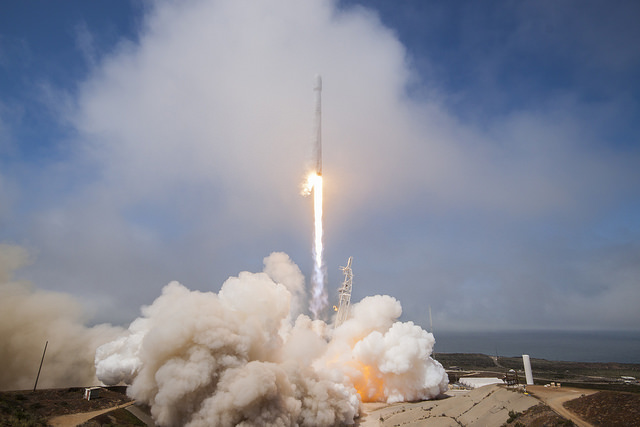
The Formosat-5 mission Falcon 9 rocket launched from the Vandenberg Air Force Base in California (Image: SpaceX)
The SpaceX Falcon 9 apparently tore a big hole in the Earth’s ionosphere (the regions of the earth’s atmosphere extending from earth’s atmosphere extending from about 80 to 400 kilometers above the surface of the earth), which could cause errors in global positioning system (GPS) navigation.
Exhaust from the Falcon 9 launch during one of its launches created chemical reactions in the Earth’s ionosphere. The shock waves from this reaction tore a 900-kilometer-wide hole through the ionosphere when the rocket sped off into space, according to a study published in the journal Space Weather.
Data gathered by researchers suggest that holes similar to this in increased numbers may eventually disrupt the accuracy of GPS navigation on land – something the study believes should be given more attention moving forward as more rockets take off into space in the future.
The researchers studied the Formosat-5 mission, which launched a Falcon 9 rocket in August 2017. Its payload had been light enough to allow the rocket an almost vertical flight trajectory that caused the hole, the study found.
Normally, rockets followed a curved, almost horizontal trajectory to lessen the effect of gravity and stress on the rocket going through the atmosphere. /ra
RELATED STORIES:
New nickname for Pluto-explorer’s next target: Ultima Thule
Two merging galaxies caught in new snapshot by Hubble Space Telescope
5,000 days on Mars: NASA celebrates Opportunity rover’s extended stay